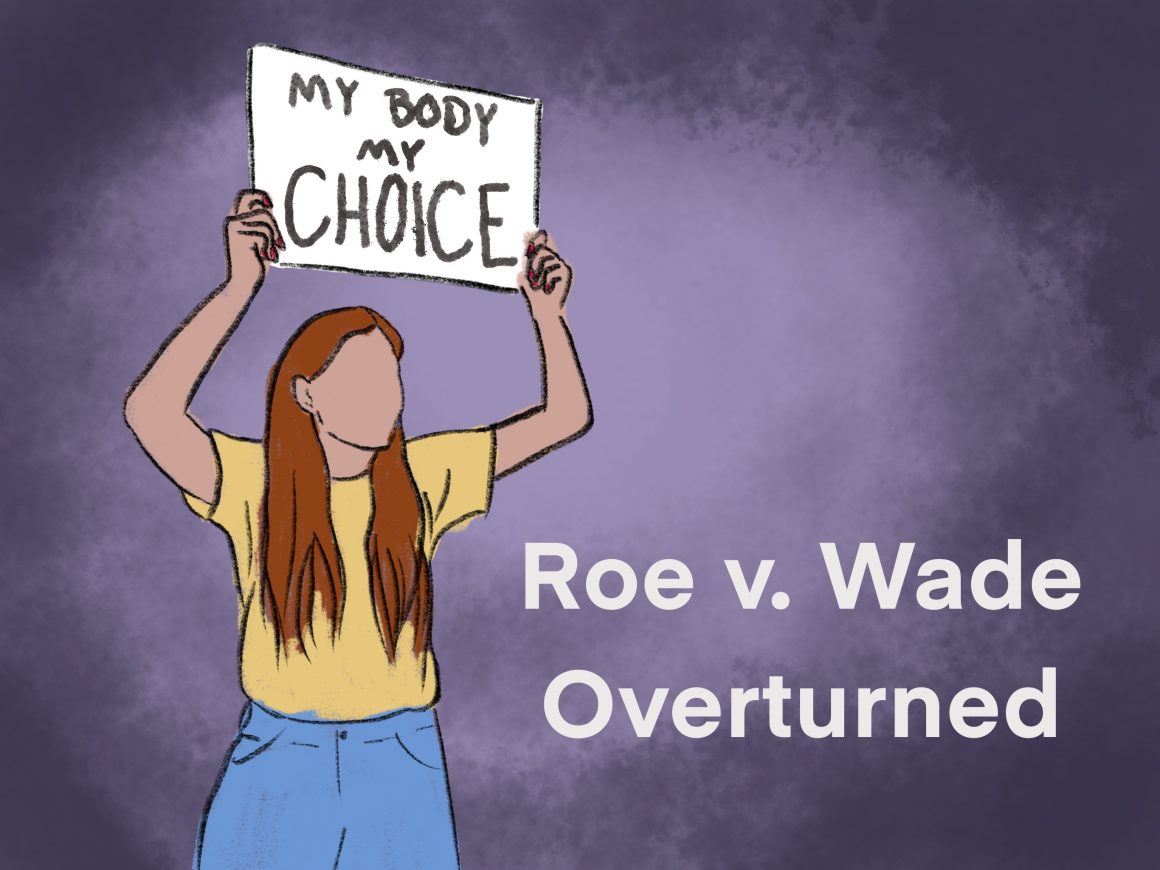
Roe v. Wade has been overturned: Will this affect Canada?
By Anabel Selemon, July 26 2022—
On June 24, nearly half a century worth of precedent in protecting American reproductive rights was overturned by the United States’ Supreme Court. The decision to overturn Roe v. Wade removes federal protection for access to safe abortions nationwide, leaving it up to individual states to protect or prohibit that access — with many states like Arkansas, Idaho and Kentucky, already introducing legislation doing just that. This comes at the heels of a newly minted 6:3 conservative super-majority amongst the nine Supreme Court judges, thanks to three key appointments by former president Donald Trump — Neil Gorsuch, Brett Kavanaugh, and Amy Coney Barrett. While this United States Supreme Court decision has been leaked to the public for months, the ruling coming into fruition sent shockwaves across the US and around the world, dominating news headlines, igniting a social media frenzy and mobilizing protests that have extended up north to Canada.
Access to safe and legal abortion is vital to the bodily autonomy of those with reproductive abilities and remains the core of longstanding women’s rights issues. Suddenly removing 50 years of precedent in guaranteeing the right to receive abortion services places the lives and futures of those who need abortions in dire jeopardy, particularly those who cannot access travel to a different state. These consequences span from the immediate potential of experiencing serious damage to their physical and mental health from a forced-pregnancy, particularly an unsafe pregnancy, to the long-term consequences of widespread unplanned pregnancies — predominantly amongst those of a lower-income status, resulting in greater economic impoverishment for individual families and the community at large.
Though the overturning of Roe v. Wade directly impacts safe abortion access to those residing within American jurisdictions, the political climate in the US has been demonstrated to impact Canada’s as well. We can look to examples such as the surge of American right-wing populism inspiring former federal Conservative leader, Erin O’Toole, to utilize the slogan “Take Canada Back” — eerily akin to former American president Trump’s infamous slogan “Make America Great Again.”
This begs the question — will the ruling influence Canadian legislation regarding reproductive rights, with many pro-life Canadian politicians applauding it as a win? For those of us keen on ensuring Canada’s reproductive liberties are protected, the Canadian political scene ought to keep a healthy distance from America-style politics.
Just as abortion access was protected in the US through a Supreme Court decision in 1973, abortion was decriminalized through a Supreme Court case in Canada in 1988, R. v. Morgentaler, with no legislation to replace the decision, leaving the ruling vulnerable to being overturned, much like Roe v. Wade. However, enshrining abortion as a right may provide leeway to future governments tinkering with those laws, unlike the Supreme Court ruling remaining within the judicial branch without legislative interference.
In Alberta, Premier Kenney has famously campaigned against access to abortion in the 1990s, and has dismissed any introduction of conversation surrounding abortion in Alberta in the wake of the Roe v. Wade ruling as an attempt to “invent a political controversy” by the opposition party. While the right to an abortion remains protected in the province on a federal level, many activists have pointed to issues of access, with the provincial government being responsible for the funding and Alberta Health Services decided where and what services will be offered, according to provincial Health Minister, Jason Copping.
Three abortion clinics exist in Alberta — one in Edmonton and two in Calgary — centering scattered abortion access in the two major urban centres only, placing a travel burden and cost on rural Canadians, many of which reside in Indigenous communities. Patchy access extends nationwide. TK Pritchard, executive director of the Kitchener-based SHORE centre, a non-profit offering sexual and reproductive services told CTV News, “With clinics being overrun, folks not having access to a family doctor […] if you’re outside an urban centre, it does mean that abortion is not accessible for a lot of people. And it’s definitely time that we stop pretending that it’s accessible in Canada.”
Pritchard builds his argument by pointing to what exactly transportation costs entail, including accommodation, childcare, elder care and lost wages. In order to alleviate this inequity, Canada can and should introduce public policy measures to subsidize transportation costs.
The overturning of Roe v. Wade is a devastating blow to the fight for reproductive health protections and a stain within feminist history, but perhaps it will reignite conversations within Canada regarding where this country falls short in regards to safe abortion access. With only 38 of the 153 elected MPs in Canada being endorsed by the Campaign Life Coalition, and recent polling indicating that 62 per cent of Canadians identify pro-choice, it is difficult to imagine a reaction to a similar Supreme Court ruling any less than a massive uproar. Canada is certainly no panacea for reproductive health, and could use substantial public policy efforts to address abortion accessibility inequities amongst Canadians, such as subsidizing travel costs.
This article is a part of our Voices section.
